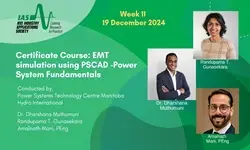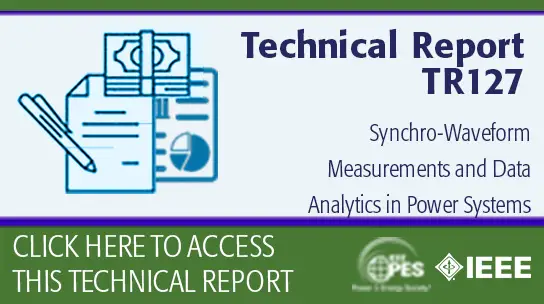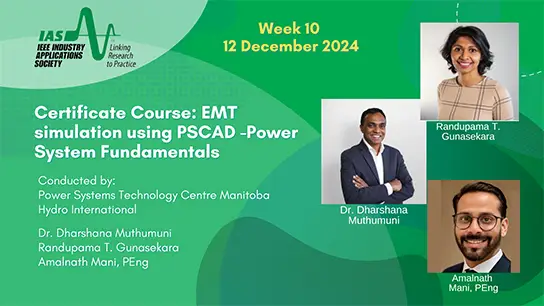Model validation of RES and other system components through PMU data: Opportunities, challenges, and practical experiences
M. Venkatasubramanian, A. Pal, Q. Zhang, L. Lima
-
Members: FreePES
IEEE Members: $25.00
Non-members: $40.00Pages/Slides: 73
Panel
18 Jul 2022
In recent years, Phasor Measurement Units (PMUs) have started to be extensively available worldwide. They can provide high-sampling-rate, high-precision, and GPS-synchronized dynamic measurements of voltages and currents in the grid, power quantities, and frequency.
Among several other applications, PMU measurements can be used to calibrate system components online, reducing the costs of having to disconnect grid components, such as generators, that needs to be calibrated. Model validation using PMU data consists of comparing PMU measurements with the time evolution of the same variables obtained through time-domain dynamic simulations. Most studies found in the literature validate generator and controllers in power systems, where the rest of the system is represented in terms of the voltage and frequency (or phase angle) of the terminal busbar measured by PMUs. If the error between the real PMU data and simulations results for a particular variable is bigger than a predefined threshold, it is necessary to identify the key variables that affect the model’s response, and then calibrate some control/model parameters. This method for validating dynamic models is called “event playback”; and the PMU measurements used for the pre fault scenario are called “played-in signals”.
Although PMUs data has been successfully used to validate and calibrate system components’ models, there are still several questions regarding criteria, thresholds, methodological steps, and best practices, among others, that needs to be discussed to reach a kind of consensus or systematic guidance about the best way to use PMUs for model validations. In this context, the goals of this panel session are to identify and discuss opportunities and challenges related to model validation of different system components using PMU data as well as to share existing practical experiences.
Among several other applications, PMU measurements can be used to calibrate system components online, reducing the costs of having to disconnect grid components, such as generators, that needs to be calibrated. Model validation using PMU data consists of comparing PMU measurements with the time evolution of the same variables obtained through time-domain dynamic simulations. Most studies found in the literature validate generator and controllers in power systems, where the rest of the system is represented in terms of the voltage and frequency (or phase angle) of the terminal busbar measured by PMUs. If the error between the real PMU data and simulations results for a particular variable is bigger than a predefined threshold, it is necessary to identify the key variables that affect the model’s response, and then calibrate some control/model parameters. This method for validating dynamic models is called “event playback”; and the PMU measurements used for the pre fault scenario are called “played-in signals”.
Although PMUs data has been successfully used to validate and calibrate system components’ models, there are still several questions regarding criteria, thresholds, methodological steps, and best practices, among others, that needs to be discussed to reach a kind of consensus or systematic guidance about the best way to use PMUs for model validations. In this context, the goals of this panel session are to identify and discuss opportunities and challenges related to model validation of different system components using PMU data as well as to share existing practical experiences.
Primary Committee:
Electric Machinery Committee (EMC)



